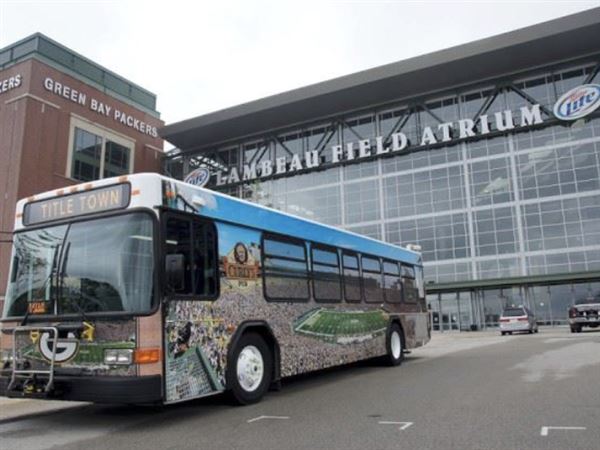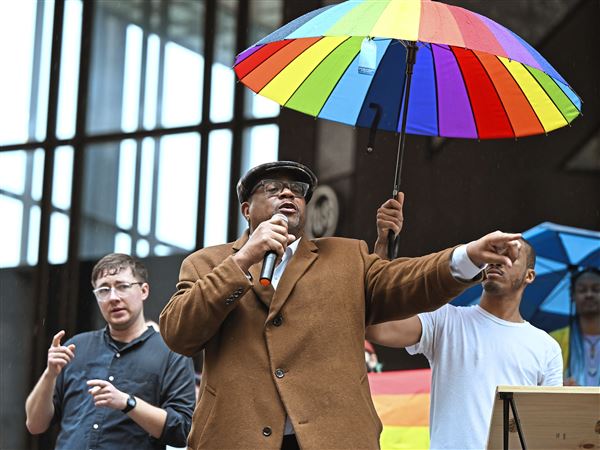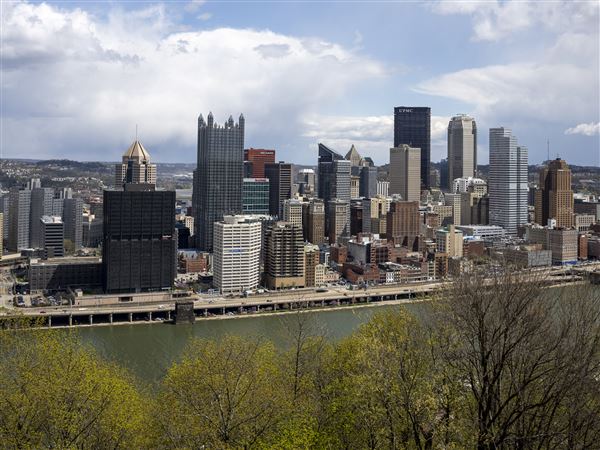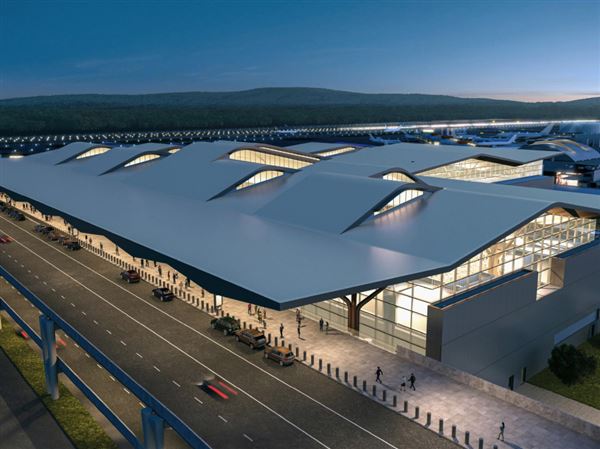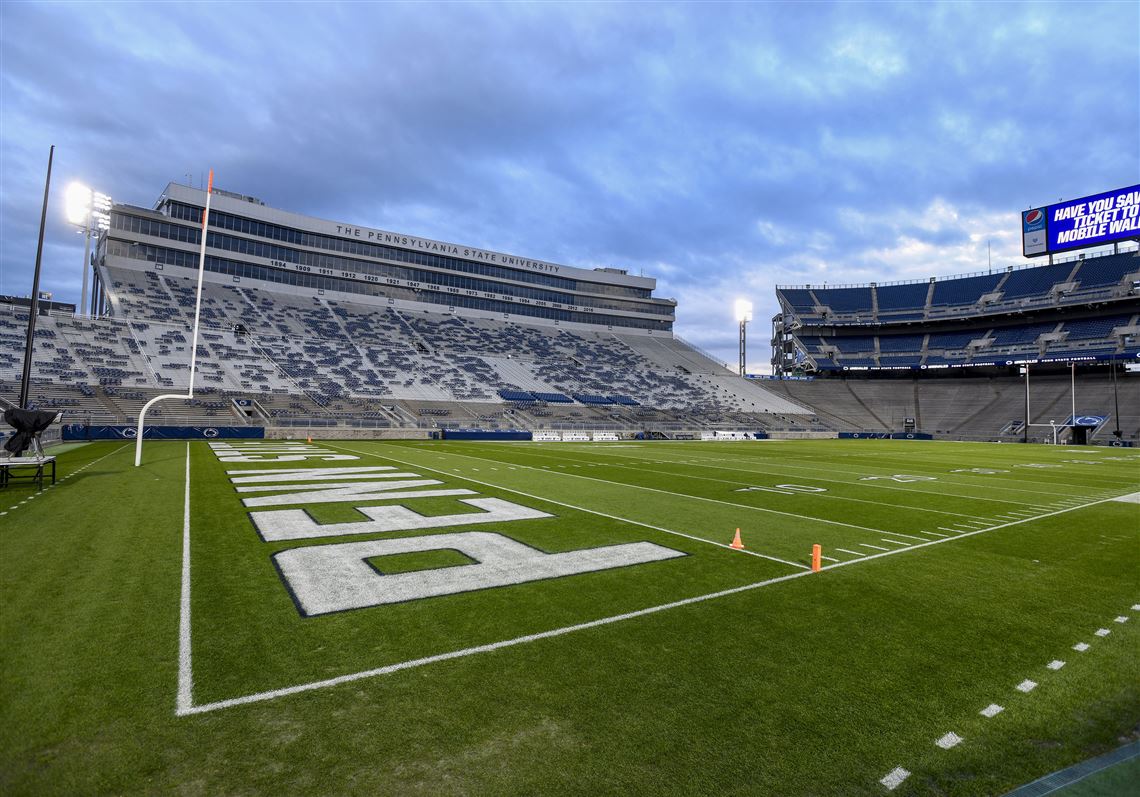First stages of a long-awaited Beaver Stadium renovation were recommended for approval Thursday by the Penn State Trustees’ Committee on Finance, Business and Capital Planning.
The panel endorsed a $70 million budget for the first steps of the multi-year project, including priority maintenance projects, “winterization” work designed to leave the stadium ready for a potential college football playoff game, and architectural and design work for the broader $700 million makeover ahead.
The committee’s vote sets the stage for approval by the full board on Friday.
Athletic Director Pat Kraft said the need is there from revenue, maintenance and fan experience perspectives.
“All of the above,” Mr. Kraft said. “We have a backlog of $200 million in deferred maintenance that needs to be addressed... We have lack of premium seating that drives revenue for us. Football is the main driver of revenue for us as a department.
“So we have to secure the future of not only our department but the stadium and really truly what that stadium means to the community and everybody associated with Penn State.”
The proposed makeover, Mr. Kraft believes, will leave Penn State with a stadium worthy of its national standing in the 21st century college football pantheon, and one that — more than ever before — is adaptable to occasional non-football uses, such as a summer concert or a National Hockey League Mid-Winter Classic game.
All that while preserving the “House That Joe Built” familiarity that is so meaningful to the largest cohort of the Penn State faithful.
Mr. Kraft did not put a number on how many more ticketed events a refurbished Beaver Stadium could host each year post-renovations, but he said the idea is to “take any of the inhibitors away from having any type of event there.”
The first phase “winterization,” for example, is specifically targeted at leaving the stadium equipped for a hoped-for late December college football playoff game after that field is expanded to 12 teams in 2024. Once there, possibilities like a Pittsburgh Penguins/Philadelphia Flyers matchup come into view, as well.
The heart of the larger renovation is a complete reconstruction of the west side of the stadium, which will maintain traditional bowl-style seating while adding anticipated club and loge seats and executive and founder’s suites.
While one key objective of the project is to increase “premium seating,” Mr. Kraft said there will lots to like for the general admission fan as well.
In a telephone interview before Thursday’s meeting he ticked off several: better wifi cell service in and around the building; more points of sale for concessions; updated bathrooms; and better circulation patterns for moving people around.
And, in a particular point of pride for many Penn Staters, Mr. Kraft says care will be taken to keep the stadium’s game-day capacity above 100,000.
“We will never be under 100,000 (seats),” Mr. Kraft said. “That’s who we are.”
Part of the challenge of the project, he acknowledged, is not tampering with what’s already great: the overall game day atmosphere at Penn State, consistently ranked by independent observers as one most charged “12th Man” venues that any visiting team will ever face.
“That’s why there was really a push to stay in Beaver Stadium and do this project ... because of how special Beaver Stadium is,” Mr. Kraft said. “So we’re going to hold on to who we are and the traditions that exist in that building.”
Mr. Kraft said the lingering question of whether and how to permanently honor former head football coach Joe Paterno at the stadium is one that will involve a broader university discussion as the overall project moves forward.
“That’s going to be a larger conversation that President [Neeli] Bendapudi, [Trustees Chairman] Matt Schuyler and everybody is involved in,” Mr. Kraft said.
The heart of the west side construction is scheduled to launch in January 2025, after the last possible dates for the 2024 season. Work would be tailored around the football seasons, though Mr. Kraft said some west side seating will be lost for the 2026 season.
Mr. Kraft could not give Finance Committee members hard numbers on how many seats will be sidelined that year, but he expressed confidence that it would be well under 10,000.
All work, according to the project timeline, would be completed by August 2027.
As university officials often note, Penn State’s is one of a handful of self-sustaining intercollegiate athletics departments nationwide, meaning it makes enough money on its own through broadcasting deals, ticket sales and licensing agreements to cover its operations.
The initial $70 million expenditure will be funded as part of a larger bond issue planned for June.
The long-term plan is to cover the Beaver Stadium project and any related debt service through dedicated revenues from football ticket sales, including new premium seating options, concessions revenue, naming opportunities and a fundraising campaign aimed at raising $200 million.
It will not dip into any of the annual state appropriations or tuition revenue that Penn State receives, though PSU administrators said Thursday they are leaving the door open to other capital assistance from the state, if the opportunity arises, given the stadium’s economic impact.
According to a 2022 study commissioned by Happy Valley Adventure Bureau, the annual economic impact in Centre County alone for Penn State football visitor spending is estimated at $87 million.
At bottom, the project is an investment in the athletic department’s main money-maker, and the university’s top attention-getter.
Penn State’s football program showed a profit of $53.6 million in 2021, the last year for which a full accounting is available. That came from gross revenue of $107.1, and expenses of $53.5 million. These numbers don’t include the school’s share of the lucrative Big Ten Conference broadcast deal.
The trustees’ Friday agenda will also include final votes on five other major athletic department projects, including:
- A proposed $22 million renovation to the football coaches offices, meeting spaces and an “events space” to assist with recruiting at the Lasch Football Building.
- Construction of a new soccer operations center adjacent to the Jeffery Field soccer stadium, including new home and visitor locker rooms, for a projected $21.2 million. Penn State’s soccer offices are currently in Penn State’s Rec Hall.
- An indoor practice bubble for the university’s “Olympic sports” programs, and the soccer teams, at a projected cost of $9.8 million.
First Published May 4, 2023, 9:26pm


